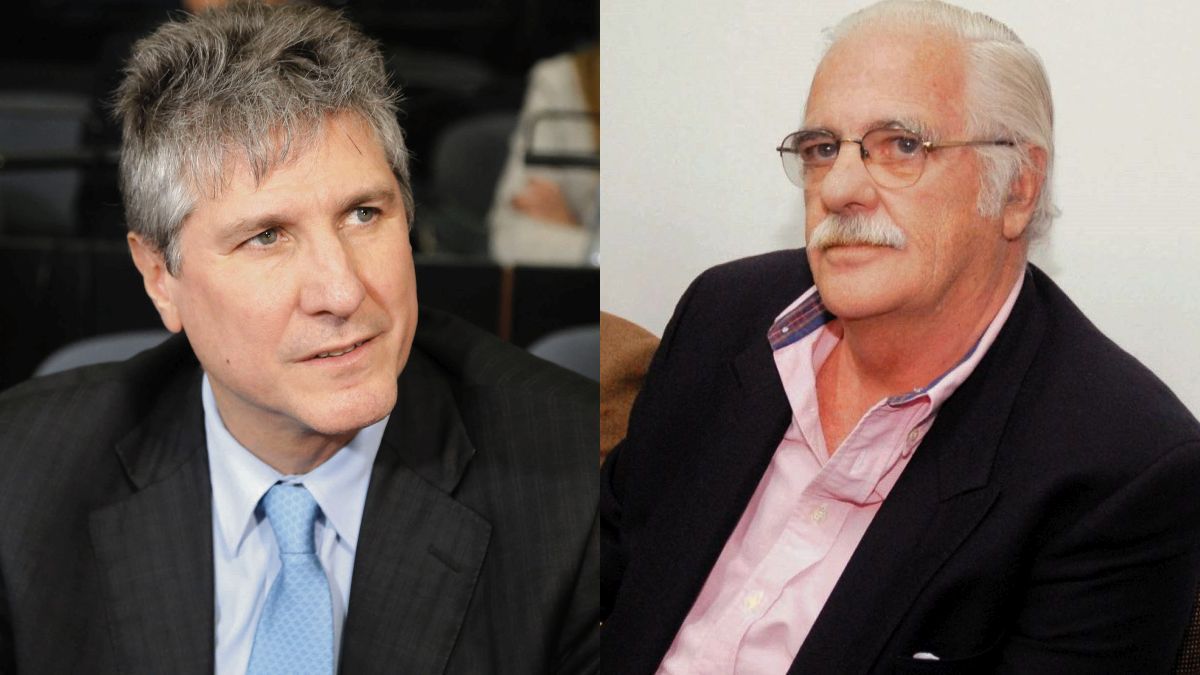It’s almost the reverse scenario to what you went through last week Beloved Boudou, to which the Court, with the same mechanism, avoided ruling on the Ciccone case and thus signed his sentence to 5 years and 10 months in prison. Kirchnerism raised its protest, and even some referents of the ruling party via social networks did. Deep down, they understood that the Court had taken the opportunity to challenge the Government. Especially when the Consultative Council of jurists had made some modifications to mitigate the indiscriminate use that the Court can make of this “laziness”. Matures –especially in the hardest sector of the ruling party- the idea that the main problem of all judicial misadventures derives from the Court. He must decide whether politically it is convenient to choose it to unfold a battle epic, in a year in which multiple topics will lead to the fourth floor of the Palace of Courts, in what has been the exacerbation of the judicialization of politics.
An example of this is the struggle for the partnership between the City of Buenos Aires and the Nation. When politics fails to solve a problem and resorts to court arbitration, it usually has two problems. It has already happened with the Bruglia-Berrtuzzi case. What would happen if the highest court orders that a new Coparticipation law be enacted to resolve the conflict? Two of its members – conventional constituents – 26 years ago wrote it. It would be enough to add just one more will.
On the fourth floor of Talcahuano 550 they observe the discussion of “representative powers” regarding the law that at the request of the Government regulates the funds for the transfer of the police to the City. Thus, the times will be regulated around that decision. Bad news for Horacio Rodríguez Larreta that could see how the subject crosses the holidays and plunges into the judicial fair to emerge only on the agenda since February 2021. This situation is not feasible to be noted as a triumph in the Nation’s account either: it continues to suffer from bridges of contact and valid dialogue with the different vocalías. There were no shortage of requests for a meeting during November, but mutual suspicion guides the (non) relationship. It will be necessary to calibrate the test of war drums pointed by the cannons, with the 280 and with other reforms, aimed at hitting like a missile on the fourth floor of the Palace.
The back room of Boudou It offers nuances that went unnoticed. In fact, there was some scope to explore an in-depth analysis of the conviction, something that was not going to benefit the situation of the exvice, contrary to what is now claimed. There was consensus, then, that the “280” was a kind of pious formula. There were appeals that were dismissed for formal defects as well. Obviously, the reading was the opposite, after the meaning of the decision transcended from one of the members more than 24 hours before it was actually signed. It ran like wildfire for the media that only found confirmations. The choice of timing was not accidental but it was not surprising either. Those who like gambling would have played a plenary session that former officials were going to suffer the blows of a ruling that -in substance- benefited the Government for the transfer of judges practiced by the macrismo. It seems that it had occurred a century ago, but that discussion was presented as the bisector between Republic and anomie. Germán Castelli must hurry to go to the Federal Administrative Litigation Chamber, with the sole purpose of buying time now that his protection was rejected in the first instance. In an analogy with the episode that world reality went through -such as the death of the star Diego Maradona-, and the focus that justice put on the role of his doctor Leopoldo Luque, in judicial corridors there began to be spoken of lawyers who “leopoldoluquean” to Your clients.
Boudou’s ruling took the mark for politics, but at the same time, there was a court decision that shook the business world, especially in the energy field. With four signatures -Carlos Rosenkrantz did not participate in the ruling-, the Court ordered that a new ruling be issued to assess the environmental impact of the installation of the Matheu I and II thermoelectric plants in Pilar, which are the result of a neighborhood claim for more than three years. Campana federal judge Adrián González Charvay had granted a precautionary measure that put them on hold. The works had been activated with macroism and had the endorsement of former mayor Nicolás Ducoté. But the Federal Chamber of San Martín revoked the precautionary statement with the argument that it was not a judicial issue, a decision that escalated to the Court. The lawsuits were directed against Araucaria Energy SA and against APR Energy SRL, which are attributed to José Luis Manzano – who came to the aid of Rogelio Nores, the main shareholder – and to the Gramercy fund, among other possible partners. But the problem, according to the businessman and politician “run run”, is that confidence in a ruling favorable to thermoelectric plants had been announced days before both to the municipality and the Province of Buenos Aires, which are kept informed of the conflict. The final decision was an unexpected and open-ended shock. Several judicial operators had moved to that sector of the suburbs who are no longer attracted by the adventures of Comodoro Py and moved their scope of action to the outskirts. The reverse effect did not go unnoticed.
–


